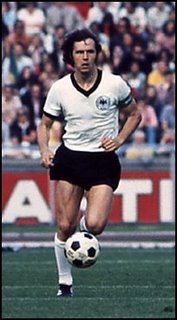This is an opinion piece I wrote for my First Amendment class.
Blogging is a new form of social media that provides a forum for the opinions of many and connects people from all around the world. According to the Pew Internet and American Life Project, at least 8 million U.S. adults have their own blogs and 27% of Americans read blogs. In fact, blogs became so important that in 2004, bloggers attended both the Democratic and Republican parties’ national conventions. But, the freedom of these bloggers to express their political opinions, as granted by the first amendment, is unjustifiably being called into question because there is no clear precedent in regulating political speech on the Internet.
On March 28, the Federal Elections Commission (FEC) won a great victory for the first amendment and political speech on the Internet. The FEC voted unanimously to adopt campaign-finance rules to keep most political speech on the Internet unregulated and protect the rights of individuals to freely express their political opinions through the Internet. The strides the FEC made to secure these rights is only a temporary solution, the issue is still under evaluation and the public has until June 3 to weigh in on the matter. However, a proposed bill from U.S. Rep. Jeb Hensarling seeks to grant these essential rights to bloggers for good. Hensarling wants Congress to keep bloggers immune from the campaign finance reform regulations that the traditional media must heed. This keeps bloggers from needing to tag “paid for by whomever” onto each post to avoid legal consequences.
When Congress enacted the Bipartisan Campaign Reform Act of 2002, they were right not to place regulations on the Internet. However, it was wrong not to take it one step further and guarantee the free speech rights of bloggers. The reform act simply clumps all speech under the tag of “public communications,” but Congress and the FEC must exclude the Internet from that sweeping generality to protect Internet speech. This protection includes bloggers and other political commentators, but does not protect advertisements. This could unfairly restrict the speech of bloggers from political interest groups because it only protects uncompensated individuals using their own publicly available computer equipment.
People who read blogs do so because they find the content interesting, respect the bloggers’ opinions or because they hate the writer and seek to justify their hatred. This being the case, it is illogical to restrict speech or require blogs to disclose any endorsement from political parties or candidates. If a blog sells out and makes every word a pitch for a candidate, the readers will know. And if they disagree, they will stop reading the blog. However, the readers likely read the blog because they agree with the stance the blog or organization takes, and likely sought out these messages.
Political speech on the Internet has not been regulated in the past, and for good reason. The Internet is a medium where the user seeks out the information they want. So if they want to read a blog praising one candidate or another, it doesn’t matter if the endorsement was paid for or awarded on the basis of merit. No one in their right mind would go to a left-leaning blog, such as DailyKos.com, seeking praise for George W. Bush.
In the Branzburg v. Hayes case, which dealt with the requirement of journalists to appear to testify and identify their sources, Justice Byron White said, “Freedom of the press is a ‘fundamental personal right’ which ‘is not confined to newspapers and periodicals.” Had this ruling occurred today, Justice White would likely specifically list the Internet as an extension where free speech must be protected.
First amendment philosopher Thomas Emerson would also advocate the protection of political speech on the Internet. Emerson believed political speech must be protected at all costs because it enabled democracy. He maintained that government derives its power from the people so these people must have full and unabridged freedom of expression. This would certainly include bloggers, especially those addressing political issues.
Blogs are meant to be forums for opinions; all the more reason the first amendment must be extended to protect their political speech. If this fundamental right is taken away or bloggers are forced to disclose all outside interests and input, there would be more disclosure than free expression. Congress must protect the right of political expression on the Internet, especially for bloggers. There is no precedent for limiting political expression on the Internet, but the long-standing philosophy of Emerson serves as the path to free expression in this matter.






















